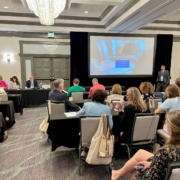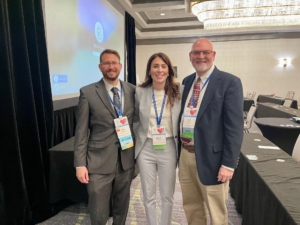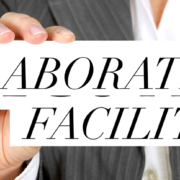Just because you are going through divorce does not mean you have to give up your privacy. Yes, in traditional divorce, proceedings are open to the public. Sure, most Florida divorce lawyers will tell you that you have to file your divorce in the county where you last resided with your spouse, making it easier for family, neighbors, and business competitors to snoop on you. And, historically, you have been required to file financial affidavits in a court file that anyone can access.
Fortunately, there are alternatives to all of these issues to help maintain your privacy.
Collaborative Divorce – Private Negotiations
Collaborative Divorce is a private form of dispute resolution where discussions take place in discreet conference rooms or via Zoom rather than in a public courtroom.
In the Collaborative Process, you and your spouse each have your own, separate lawyers to provide each of you with independent legal advice. Your lawyers are prohibited from fighting in court; if court action is needed, your Collaborative Lawyers are fired. This aligns the incentives of both lawyers and both spouses to focus on reaching an agreement rather than stir up trouble and engage in costly trial work. And the vast majority of Collaborative Divorce matters are able to reach a full resolution; about 92% of Collaborative matters we have been involved in have been successful.
Oftentimes, you and your spouse will have additional support in your Collaborative Divorce. A neutral Collaborative Facilitator, who specializes in communication, family dynamics, and childhood development, will help you navigate and overcome the emotional impediments to divorce. Additionally, if you have children, the Facilitator will help craft a parenting plan tailored to your kids’ needs rather than have a cookie-cutter parenting plan based on a bunch of legal factors.
Further, you may have a Financial Neutral on your Collaborative Divorce team. We have found that many divorce discussions get stuck because one spouse just does not understand the family finances or fears they are being taking advantage of. The Financial Neutral, who is typically a CPA or financial advisor, works with both spouses to efficiently gather needed financial information and help even the playing field so both of you can feel that you are making informed decisions. This helps play a big role in getting through the “fight, flight, or freeze” instincts that can overtake a person going through divorce.
Choosing Where To File Your Divorce for Privacy
Most Florida divorce lawyers will tell you that you need to file your divorce in the county where you and your spouse last resided together. And that is because most Florida divorce lawyers focus their practice on contested trial work; if you file a contested matter in the wrong venue, and your spouse objects, then you have to go through a costly legal fight and you may then need to pay to have your matter transferred to the “correct” county.
Read more →
 SCFLP is similar to a local bar association (it is not a law firm), and it is a membership-based organization made up of independent lawyers, psychologist, therapists, accountants, and financial planners who believe that there are better alternatives to court-based divorce. Specifically, the group educates professionals and the public about Collaborative Divorce and Family Law, and its members help families through the Collaborative Process.
SCFLP is similar to a local bar association (it is not a law firm), and it is a membership-based organization made up of independent lawyers, psychologist, therapists, accountants, and financial planners who believe that there are better alternatives to court-based divorce. Specifically, the group educates professionals and the public about Collaborative Divorce and Family Law, and its members help families through the Collaborative Process.











